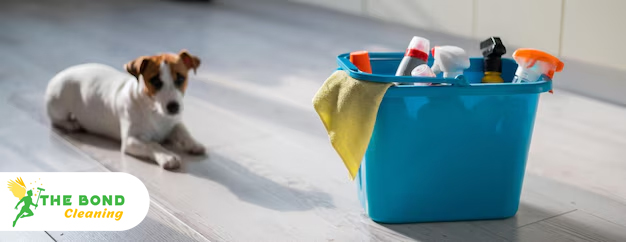Legal Aspects of End of Lease Cleaning in Australia
When it comes to the end of a lease agreement in Australia, tenants and landlords often find themselves entangled in various legal considerations, particularly regarding the condition of the property. One of the crucial aspects of this transition is end of lease cleaning. As tenants prepare to vacate a property, ensuring it meets certain standards of cleanliness is essential for the return of their bond deposit. However, understanding the legal nuances surrounding end of lease cleaning is paramount to avoid disputes and ensure a smooth transition for all parties involved.
Understanding Lease Agreements
Before delving into the legal intricacies of end of lease cleaning, it's essential to understand the foundation upon which these obligations rest - the lease agreement. Lease agreements in Australia outline the terms and conditions governing the landlord-tenant relationship, including responsibilities regarding property maintenance and cleanliness.
Typically, lease agreements include clauses detailing the tenant's obligation to return the property in a clean and well-maintained condition at the end of the tenancy. Failure to adhere to these obligations may result in financial penalties, such as deductions from the bond deposit, or even legal action.
The Importance of End of Lease Cleaning
End of lease cleaning serves multiple purposes. Firstly, it ensures that the property is in a suitable condition for the next tenant or for the landlord to repossess. Secondly, it fulfills the tenant's contractual obligation as stipulated in the lease agreement. Finally, it facilitates the smooth return of the bond deposit to the tenant.
Legal Standards for End of Lease Cleaning
In Australia, there are no explicit legal standards or regulations governing end of lease cleaning. However, common law principles and guidelines established by tenancy authorities provide a framework for determining cleanliness standards.
The generally accepted standard is that the property should be returned in the same condition as it was at the commencement of the tenancy, allowing for fair wear and tear. This entails thorough cleaning of all areas, including floors, walls, windows, carpets, kitchen appliances, and bathrooms. Additionally, outdoor areas such as gardens and driveways may also require attention, depending on the terms of the lease agreement.
Bond Deposit and End of Lease Cleaning
The bond deposit, typically equivalent to four to six weeks' rent, serves as a form of security for the landlord against any damage or breach of the lease agreement by the tenant. At the end of the tenancy, the bond deposit is refunded to the tenant, provided the property is returned in an acceptable condition.
End of lease cleaning plays a crucial role in determining the return of the bond deposit. If the property is not cleaned to the required standard, the landlord may deduct cleaning costs from the bond deposit before returning the balance to the tenant. Disputes regarding cleaning standards and bond refunds are common, highlighting the importance of clarity and communication between landlords and tenants.
Tips for Tenants
For tenants preparing to vacate a rental property, following these tips can help navigate the legal aspects of end of lease cleaning:
1. Refer to the Lease Agreement: Familiarize yourself with the cleaning obligations outlined in the lease agreement to ensure compliance.
2. Document Condition: Before commencing cleaning, document the condition of the property through photographs or written notes. This can serve as evidence in case of disputes over cleanliness standards.
3. Allow Sufficient Time: Allocate ample time for end of lease cleaning to ensure thoroughness and avoid last-minute rush.
4. Engage Professional Cleaners: Consider hiring professional cleaners experienced in end of lease cleaning to ensure the property meets the required standards.
5. Communicate with the Landlord: Maintain open communication with the landlord regarding cleaning expectations and any issues encountered during the process.
Conclusion
End of lease cleaning is a critical aspect of the tenant's obligations when vacating a rental property in Australia. While there are no specific legal standards governing cleanliness, adherence to the terms of the lease agreement is paramount. By understanding their responsibilities and engaging in effective communication with landlords, tenants can navigate the legal aspects of end of lease cleaning and facilitate a smooth transition at the conclusion of their tenancy.




Comments
Post a Comment